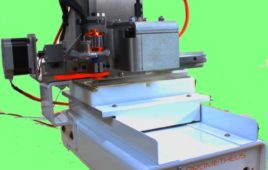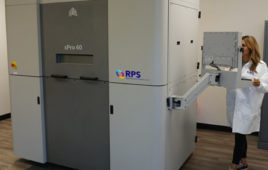Those who have a high tolerance for spicy foods may be able to win their local chili-eating contest, but eating spicy foods wears out our taste buds. This can be a hurdle for people who make and sell spicy foods to individuals who want a little kick to their meal.
Now, Washington State University has created an electric tongue that does the test-tasting for us before a product goes on the market.
“At low concentrations, or low spiciness, it’s hard to discriminate between two samples,” says Courtney Schlossareck, a recent graduate student in the WSU/UI School of Food Science. “It’s also hard to tell a difference between two samples at high concentrations.”
The e-tongue can measure these small differences and is accurate in differentiating the spiciness between samples.
This electronic tongue could be a handy tool for the food industry, but is specifically pertinent to the WSU Creamery who makes Crimson Fire cheeses.
“Spicy cheese is really popular,” says Schlossareck. “So helping cheese-makers dial in the optimum level of spiciness would be even more helpful.”
The reoccurring problem with testing spicy foods is that an individual’s taste buds give out after a few samples of spiciness. After a couple bites, their taste buds cannot actually distinguish a difference in taste at all.
The e-tongue could start with a sample of 20 different spicy arrangements, and narrow it down to a panel of two or three samples. From here, a human tasting panel could hone their taste buds on the selected few.
This electronic tongue could change the way spicy foods make their way to the market and save a few taste buds from severe spice.
Filed Under: Student programs, Rapid prototyping




